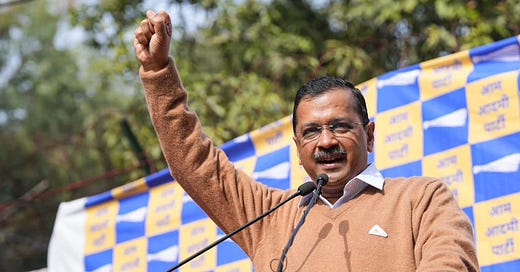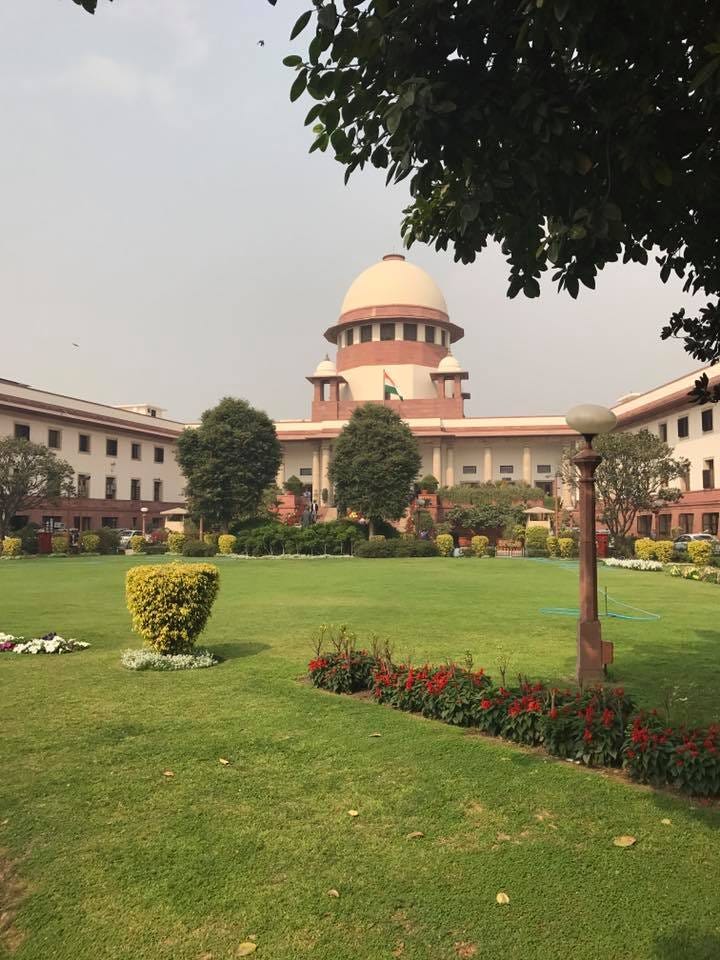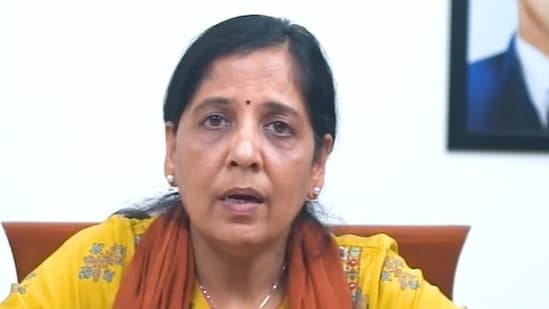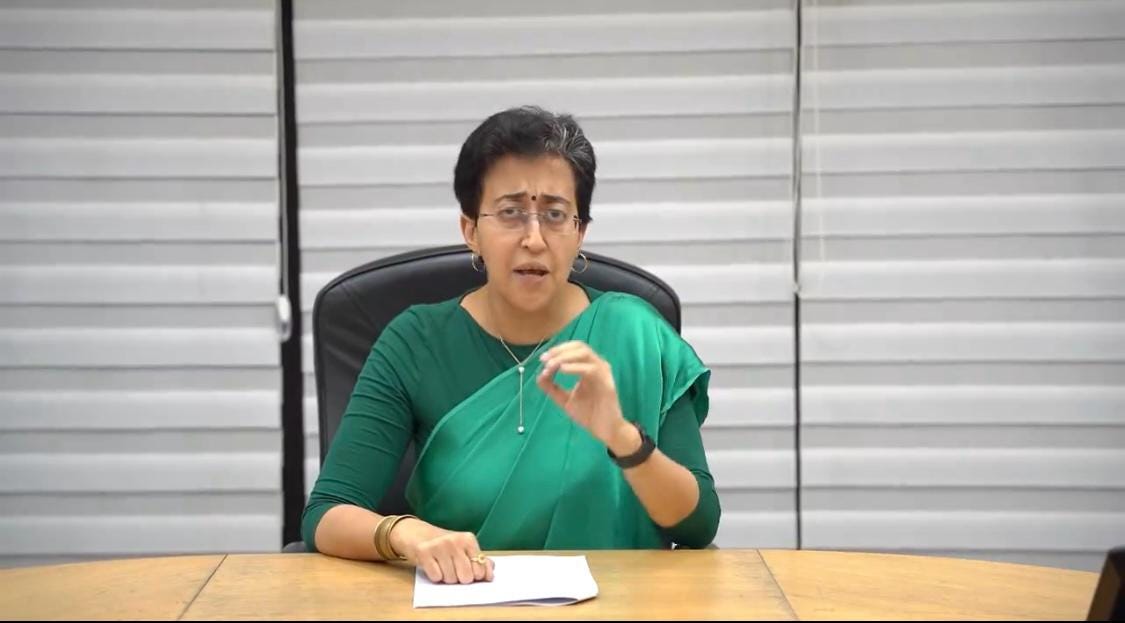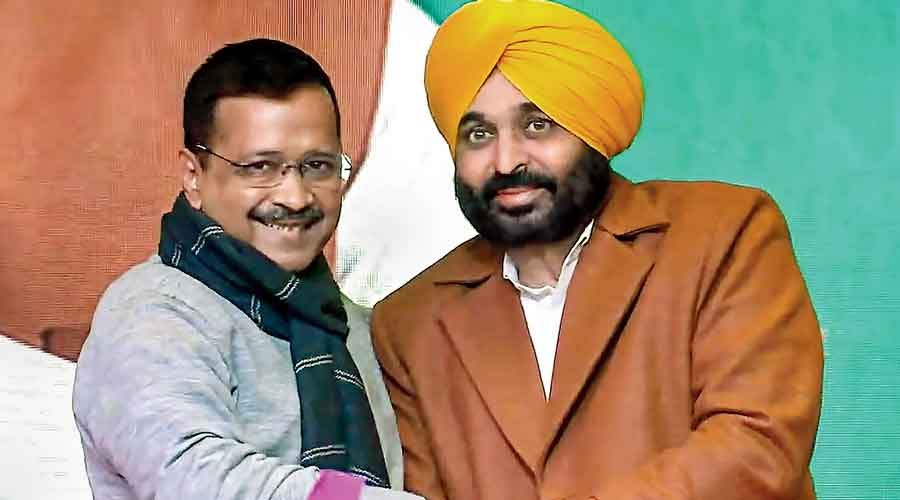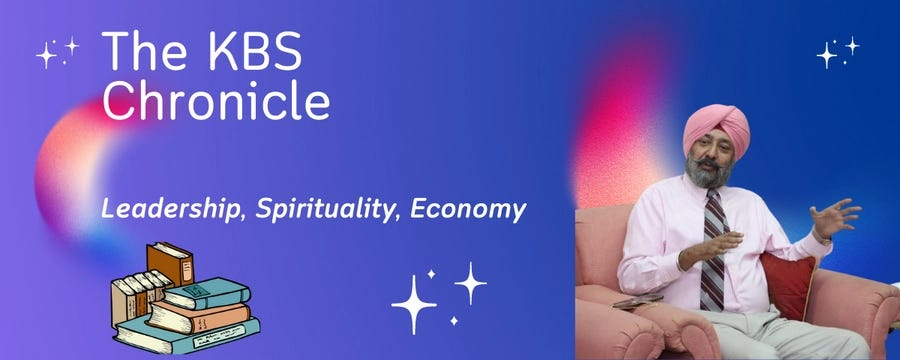Arvind Kejriwal: Our 10-point Unsolicited Advice
Strategic Recommendations for Arvind Kejriwal: Navigating Legal and Political Challenges.
Legal Challenges Ahead for Kejriwal
Arvind Kejriwal, serving as the Delhi Chief Minister and AAP National Convenor, finds himself navigating a challenging legal landscape, currently under the custody of the Enforcement Directorate (ED) until April 1, 2024. Following his arrest, which marks a significant air-pocket in his political journey, Kejriwal, alongside his team of political and legal advisors, is strategizing fervently. Their goal is not just to achieve favourable political outcomes but also to demolish the charges he deems unjustly fabricated and politically motivated. This situation sets the stage for an intense legal battle, underscoring the intricate interplay between politics and law in Kejriwal's career.
Kejriwal's Day in Court
In a significant turn of events, Arvind Kejriwal presented his arguments in before the Special Prevention of Money Laundering Act (PMLA) Court, presided over by Judge Ms Kaveri Baweja, on March 28, as his custody period with the ED concluded. Despite the full backing of his legal team, Kejriwal chose to personally articulate his defense, a rare move permitted by the Court, for nearly nine minutes. His fervent and extemporaneous verbal prayer was extensively covered in real-time by numerous Twitter accounts, including "Live Law," offering the public immediate access to the proceedings. This personal oral submission in Court highlights Kejriwal's proactive approach to his legal defense and underscores his determination to directly engage with the allegations against him.
A Calculated Stance in the Courtroom
Kejriwal concluded his courtroom argument with a strategic gesture, stating his willingness to accept whatever remand duration the ED deemed necessary, a move that showcases his legal acumen, courage and political savvy. Despite this, the Court decided to extend his ED custody only until April 1. This decision reflects not only Kejriwal's adept navigation through the intricacies of legal proceedings but also his ability as a seasoned politician to leverage situations for potential political and legal advantages. Kejriwal's approach in this high-stakes environment underscores his capacity to make calculated decisions that aim to secure the best possible outcomes within the confines of a challenging scenario.
Offering Unsolicited Advice: Insights and Recommendations
Despite merely observing from the sidelines, the unfolding of today's events, as well as the activities leading up to and following the Special PMLA Court hearing, has prompted me to offer some unsolicited advice to Mr. Arvind Kejriwal. Drawing from the intricate details and nuances observed throughout the proceedings, these suggestions are intended to provide Kejriwal with alternative perspectives and strategies that might not have been considered, aimed at navigating his legal and political challenges more effectively. This act of sharing insights underscores a desire to contribute constructively to the discourse surrounding Kejriwal's current predicament.
1. The Value of Silence
Firstly, it's imperative to emphasize the importance of the right to remain silent for any accused individual. Anything said, whether within the confines of the court or in the public domain, can be utilized against the accused. This principle serves as a fundamental protective measure in legal proceedings, ensuring that one's own words do not inadvertently become a weapon in the prosecution's arsenal. For Mr. Arvind Kejriwal, exercising this right judiciously could be crucial in navigating through his legal battles, safeguarding against potential misinterpretations or misuse of his statements.
2. Delegating Legal Defence
Secondly, there's a wise adage that even the most skilled doctor should not treat himself, which equally applies to legal defence. Although Mr. Arvind Kejriwal possesses deep insights into his case, entrusting his legal strategy entirely to his chosen legal team is advisable. While personally taking the stand may appear courageous and earn admiration from some quarters, it carries significant legal risks. A minor misstep or ill-considered remark could lead to substantial repercussions. Thus, leaning on the expertise of his legal counsel not only mitigates these risks but also ensures a more fortified defence strategy.
3. Caution in Public Statements
Thirdly, the significance of caution and restraint in public statements by Mr. Kejriwal's legal representatives cannot be overstated. A recent instance saw one of the advocates talking to the press about the money trail reaching Goa, and its potential use during elections. Such disclosures, made in the public eye, carry the risk of becoming incriminating evidence. It's crucial for the legal team to maintain a disciplined communication strategy, focusing on the outcomes of court proceedings—such as the court's decision to grant a shorter remand than requested by the ED—rather than delving into specifics that could be construed negatively. This approach not only preserves the integrity of Mr. Kejriwal's legal defence but also safeguards against inadvertently providing ammunition to the opposition.
4. Understanding the Court's Perspective
Fourth, it's vital to recognize that courts of law, from the Special PMLA Court to higher constitutional courts, are not platforms for political oration. These judicial bodies operate strictly within the realms of law and fact, largely indifferent to the persuasive powers of public speaking that might resonate with political supporters. Mr. Kejriwal and his team must tailor their courtroom strategies to align with this reality, focusing on legal arguments and evidence rather than attempting to sway the judiciary with the kind of rhetoric that might appeal to the court of public opinion. This disciplined approach is essential for effectively navigating the legal challenges at hand.
5. Prioritizing Health in Legal Proceedings
Fifth, addressing any health concerns, such as diabetes or low blood sugar, within the legal framework is crucial. It's advisable for Mr. Kejriwal to formally request medical attention through the appropriate legal channels if necessary. While expressions of concern from family members, like those from a spouse, may garner sympathy from supporters, they are not substitutes for official medical requests in the eyes of the court. Proactively seeking medical intervention through a formal application not only ensures that Mr. Kejriwal's health needs are officially recognized and addressed but also underscores the seriousness with which he and his team are approaching every aspect of his legal battle.
6. Navigating Leadership Amid Legal Constraints
Sixth, the reality of Mr. Kejriwal's potential inability to fulfill his duties as Chief Minister of Delhi, particularly if judicial custody is extended, necessitates strategic foresight. In the absence of bail or interim relief, the practical challenges of governance from detention become insurmountable. This situation warrants the consideration of identifying a loyal and capable successor within the AAP, who can assume leadership and maintain the party's legislative agenda in the Delhi Vidhan Sabha. While the prospect of removal or dismissal by the Lieutenant Governor might seem politically advantageous in the short term, Mr. Kejriwal must carefully assess the long-term implications for both the city of Delhi and its residents, as well as for the AAP. The decision to step down, if it ensures continuity and stability in governance, may ultimately serve the greater good, aligning with the party's commitment to the welfare of Delhi's people and the preservation of its political integrity.
7. The Importance of Transparent Communication
Seventh, the approach taken by Mr. Kejriwal's spokespersons and ministers in representing the legal proceedings needs careful reconsideration. Attempting to frame legal setbacks as victories or spinning the narrative in a way that diverges from the factual outcomes of court decisions risks alienating the informed public. Today's populace, especially in Delhi, is discerning and places significant value on the substance of judicial orders rather than the spin placed on them. Misrepresentation not only fails to convince the majority but can also damage credibility and trust, creating a negative perception that could be hard to reverse. It's essential for Mr. Kejriwal and his team to adopt a stance of honesty and clarity in their communications, acknowledging challenges as they are and focusing on genuine successes. This approach will not only maintain integrity but also foster a deeper connection with the electorate, based on mutual respect and understanding.
8. Guiding Principles for Peaceful Protests
Eighth, while the constitutional right to protest is a fundamental aspect of democracy, it's imperative for Mr. Kejriwal's supporters to exercise this right with a keen awareness of legal boundaries, particularly in light of Section 144 of the Criminal Procedure Code (CrPC). Violations could lead to charges under Section 188 of the Indian Penal Code (IPC), complicating the political and legal landscape further. Therefore, it is crucial that all demonstrations and protests are conducted within the framework of peace and legality. Ensuring that these activities remain non-violent not only upholds the dignity of the cause but also protects the participants from potential legal repercussions, thereby preserving the movement's integrity and its objectives.
9. Solidarity and Strategy: AAP's Path Forward
Ninth, Mr. Kejriwal's recent display of camaraderie towards Punjab Chief Minister Bhagwant Mann— congratulating him on the birth of his daughter— particularly during a challenging time, underscores the strength of personal relationships within the AAP. This gesture of goodwill, amidst the backdrop of legal proceedings, resonates as a testament to personal integrity and political solidarity. Bhagwant Mann's unwavering support and his impending battle across Punjab's Lok Sabha constituencies highlight the critical nature of unity and strategic planning.
While the massive rally in New Delhi on March 31st symbolizes a collective display of strength and unity, the focus must swiftly shift to intensive campaigning efforts. Given AAP's historic victory in the Punjab Vidhan Sabha elections, maintaining momentum and securing a formidable performance in the forthcoming Lok Sabha elections is imperative. This necessitates a concerted effort from all AAP members, emphasizing the importance of diligent canvassing to uphold the party's achievements and aspirations for Punjab and beyond.
10. Bracing for a Legal Marathon
Lastly, the legal battles Mr. Kejriwal faces under the Prevention of Money Laundering Act (PMLA), 2002, and the Prevention of Corruption Act, 1988, are undeniably grave and demand a rigorous defense strategy. These proceedings, initiated by the Enforcement Directorate and the CBI, are not to be taken lightly, nor should they incite undue fear or despair. It is essential for Mr. Kejriwal, both personally and as part of the broader organizational framework of the AAP, to be thoroughly prepared for the challenges that lie ahead. The stringent bail provisions under the PMLA, 2002, which require judicial satisfaction that the accused has not prima facie committed the offence, underscore the severity of the situation. Navigating this complex legal landscape requires resilience, strategic planning, and a steadfast commitment to overcoming the hurdles, all while maintaining focus on the long-term objectives and principles that define the AAP and its leadership.
In Summary: Navigating the Storm with Resilience and Strategy
In sum, Arvind Kejriwal's journey from launching a nascent political movement to establishing a national party with a strong foothold in Delhi and Punjab within a mere decade is nothing short of remarkable. His brand of politics, characterized by boldness and a David-versus-Goliath ethos, has not only challenged the status quo but also redefined the contours of political engagement in India. The current legal ordeal presents a multifaceted challenge—political, legal, and deeply personal—that demands exceptional navigational acumen to overcome.
The unsolicited advice provided herein, born of observation and analysis, aims to offer constructive and objective pathways through this thicket, even if it might not align with Kejriwal's existing strategies or inclinations. The prevailing political and cultural milieu may render some of these suggestions difficult to digest for his staunchest supporters. However, it's often the case that the most unpalatable advice carries the seeds of the most effective solutions.
As Kejriwal faces this formidable challenge, the true test will be in his ability to adapt and strategize, ensuring that his and the AAP's political journey continues forward, not just unimpeded but strengthened by the trials and tribulations faced. The capacity to listen, reflect, and possibly incorporate external insights could well be the difference between mere survival and a more profound, enduring success.

